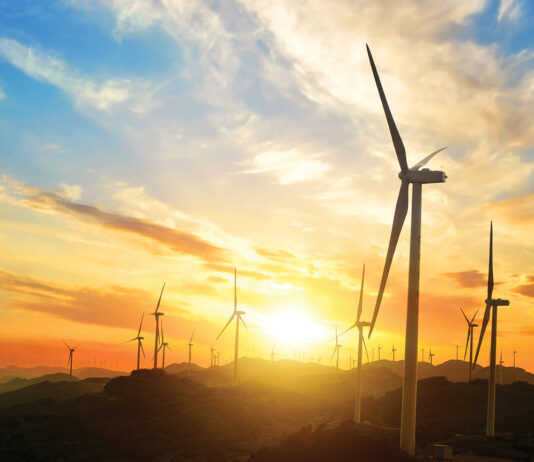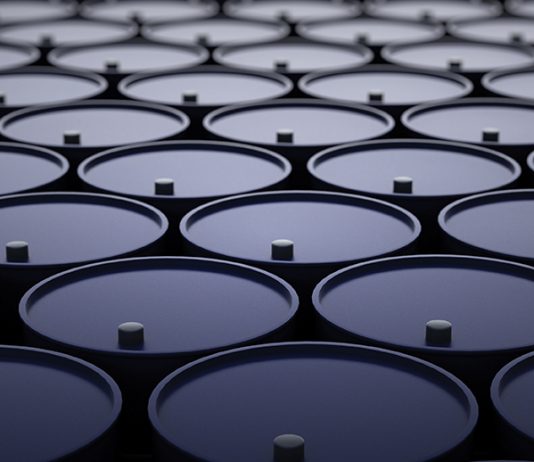
When you think of oil and gas, it’s almost best to think of it as an oil drill. For the crown block and water table to work, it has to be connected to the drilling line. And the drilling line has to hoist and pull the drill pipe. So on and so forth. But everything has to be working in unison, internally, to impact the earth, externally. The same goes for those within the industry. But rather, instead of drilling lines and pipes, there are 10.3 million workers. To keep the oil and gas industry flourishing, the workers need to be cared for internally and externally. We can talk about hydrating and acclimating to the heat all day, but at the end of the day, if workers are facing mental health issues, it could cause the entire industry to fall apart.
From field workers to offshore drillers to the CEOs of Marathon and Exxon, everyone experiences a demanding workload. According to a survey conducted by Oxford Academic, offshore workers within the oil and gas sector appear to experience depression and anxiety more than the general population. There are a multitude of psychosocial stressors within this occupation such as isolation, high responsibility, intense pressure due to their high workload, and the fatigue and lack of sleep that accompany the long hours. While it is easy to adopt the mentality of “it comes with the job”, that doesn’t have to be the case.
The same applies to those who work within the corporate industry. It’s not easy to turn your phone off at 5 p.m. when you have the physical safety of workers to worry about, business deals that need an extra push to close, or complications within the office that need attention. Especially now that everyone can be reached with the press of a button. Despite feeling anxious and on-edge even sitting on the couch at home and scrolling through endless emails, for many, putting the phone down is nearly an impossible task.
According to Dr. Michael Adamse, a clinical psychologist and author of the book “Make America Sane Again,” technology is a double-edged sword. It can establish interconnectedness, but can easily be consuming. “You have to draw boundaries,” Adamse said. “Unfortunately, you can get a hold of anyone 24/7. You have to evaluate, how important is this text, or this email. People have to learn parameters and limits. I know it’s not easy separating work life from personal life.”
It’s not just the intense work conditions that affect workers’ mental health, but also the relationships surrounding them. A study analyzed the relationship between family dynamics and the shale boom. The results found that when oil and gas is seeing substantial employment growth, there are decreased marriage rates and increased divorce rates. For offshore drillers, the intense schedule of working long stretches of 12-hour plus days, suddenly switching gears and going home can be daunting. A home typically has a routine. The kids are up at this time, and dinner is served at that time. Fluctuating between the two roles of being an exhausted and isolated worker to an active member of a family can lead to rifts within the household.
A common way that workers try to manage these intense work hours is through drug use. Methamphetamines are the #1 drug threat to the U.S. According to a study analyzing drug trends throughout Texas, “one of the methamphetamine problem areas reported by DEA involves the oil boom in West Texas. Much of this population comprises young men, single or unaccompanied, who work in the oil field. They have few ties to the community, are well paid, and their lives consist largely of hard and dangerous work in the oilfield and partying when off duty.” However, the abuse of methamphetamines is not just associated with party culture, but rather the fact that meth is a mental stimulant, and helps combat fatigue. Then, what comes up must also come down. Once the 12-hour-shift is over, many workers will then indulge in “downers”, substances that allow them to relax, such as alcohol and opiates. Similarly, because the oil fields are such a physically demanding industry, it’s not uncommon for opiates and painkillers to be abused to help with the aches and pains that come with the job.
Recognizing It’s Time for a Change?
At some point, everyone needs to take a step back and analyze where they are at in their life, where they would like to be, and what improvements need to be made to get from point A to B. In Dr. Adamse’s book, he speaks about the observant ego. This is a “narrative we play in our heads. It’s the story we tell ourselves about our lives. We go through our lives without too much depth of thought, but the observant ego makes you take a step back to think analytically about what’s going on in our world and think about ourselves for ourselves.” Self-reflection goes hand in hand with self-growth.
With at least 90% of the oil and gas industry being men, it’s easy to adopt a “man’s-man” mentality. Pride and respect go hand in hand in the establishment of identity. There is still an archaic mentality that places a stigma on seeking help from others. However, Dr. Adamse claims that if you need help, it doesn’t have to be professional. “One of the secret sauces in my book is that you don’t have to be a licensed therapist to be a good listener. However, the key is starting a dialogue. If you are struggling, reach out to a loved one, a boss, or a support group.”
There are support groups for every niche group: anxiety and depression, divorces, substance abuse, family rifts, connection with the field, etc. Another interesting avenue to approach is the discussed-based platform, Reddit. The users on this platform are typically anonymous, which provides a sense of security when sharing your thoughts.
Since internet connection on offshore rigs can be spotty at best and nonexistent at worst, the need for conversation falls on the workers and management to make sure the entire team is staying healthy. Adamse said “It starts with management allowing there to be an open dialogue. Management can go a long way to encourage that type of support system. They need to look and see if they are taking enough care of their employees.” Looking for cues is an important aspect of support. There are always queues to look out for. Are there problems with performance or with anger? Frustration is always a precursor to anger. The source of that frustration needs to be addressed head-on because unaddressed frustration leads to aggression.”
Lastly, showing appreciation for the workers in our industries is paramount. Adamse expressed that “gas has to come from somewhere. There needs to be an appreciation for the people offshore. Americans are appreciative of their work, and how we can turn on our electricity or get our vegetables or our case. If people realize that the work they are doing is valuable, that goes a long way. If people feel the recognition of their hard work, that goes a long way of mitigating mental health issues because people can get burnt out if they feel as though their work goes unnoticed.”
Additional Resources:
Alcoholics Anonymous
Crisis Text Line: Text HOME to 741741
Substance Abuse and Mental Health Services Administration National Helpline
(800) 662-4357
National Suicide and Crisis Lifeline: 988
Get the Real Story with Shale Magazine
At Shale Magazine, our sole mission is to look at the facts from an objective angle and report on current events that matter most to energy industry stakeholders. Actions like the Whitehouse unfairly characterizing oil and gas profits as “evil” while Texas plans to divest from ESG funds showcases where both sides certainly have a long way to go. Shale Magazine offers fresh insights into every issue by never shying away from a story and sticking with the facts. Make sure to check out our latest issues to stay in the know about all things energy. You’ll find great opportunities for networking and events, exclusive interviews and one-on-ones with top industry execs, and all the latest news from upstream, midstream, and downstream.
Anastasia Zoe Vastakis is one of the editors for SHALE Magazine. She graduated from Texas State University, and was previously a writer/intern for Austin Womans’ Magazine.
















